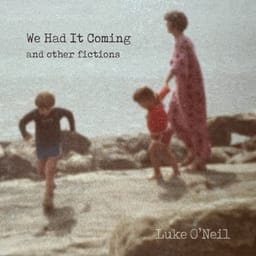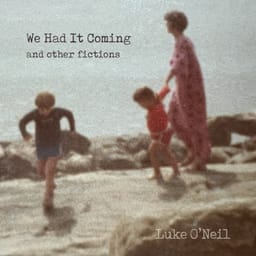Life is a problem that can’t be solved
Remembering Kaleb Horton
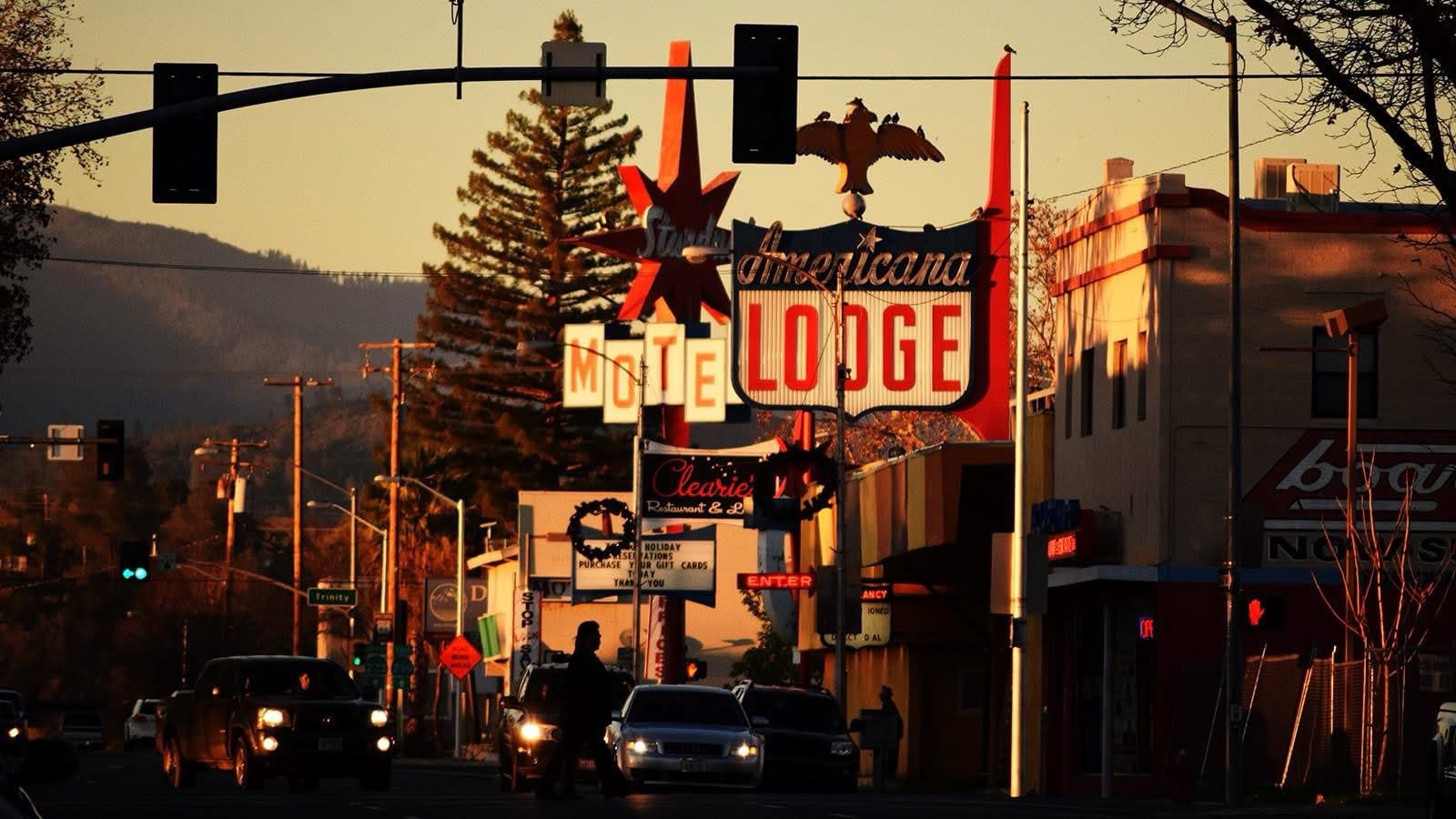
Kaleb Horton has gone on to whatever the next place is. I’m very sad about it. The funny thing is that he was very good at writing about dead guys. Charles Portis, Merle, Norm, Shane MacGowan, Bob Newhart, John Prine and David Lynch in particular. I stole the first two lines here from this piece of his about Lynch titled Death is Just a Change.
“He’s my favorite filmmaker and I’ll get better thinking about it as I get older,” he wrote but now of course he will not.
“I have the rest of time to talk about things like dreams and archetypes and his perfectly unique conception of the American West. How good he was at finding faces that clearly feel things and have humanity…” he wrote about Lynch. I could say the same about his own writing and photography.
I was always jealous of the way he saw California. And not just California but Central California. What even is that? Is that a real place? It always seemed so alien to me as a Massachusetts townie but oddly familiar through his lens.

I told him as much a few years back. How as a northeast guy his version of California fascinated me.
“I've just been thinking about how people think of California as super urban and then you look at a town and it's like, fuck, it's 200 miles from a Costco. It has changed about 2% since it was an old west town in the 1870s,” he said.
“Just the concept of remoteness. There are parts of California that are so far from the known world that if you moved there nobody could ever find you.”
Here's a thread of a bunch of his photos. Or check out his Instagram here.
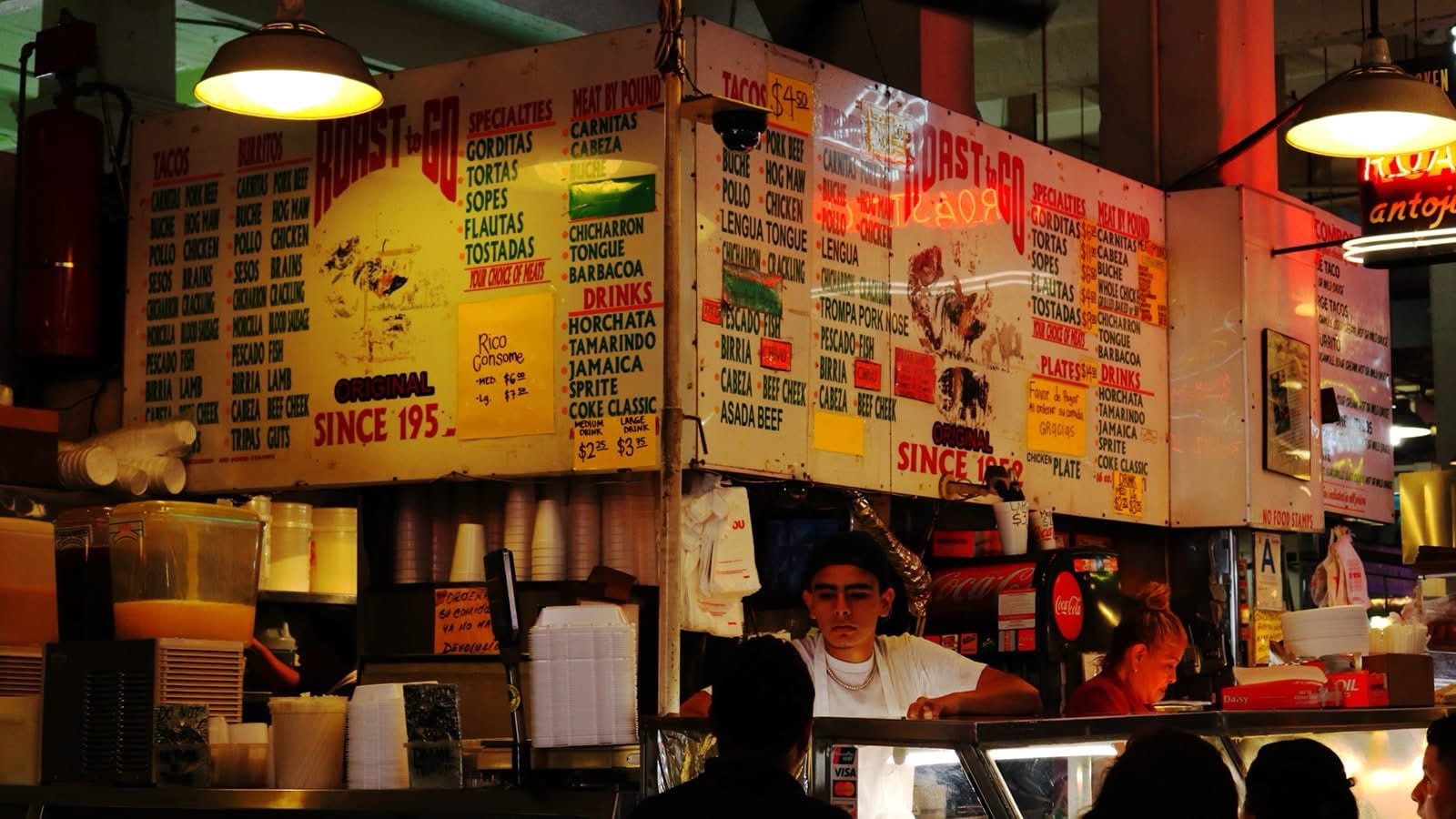
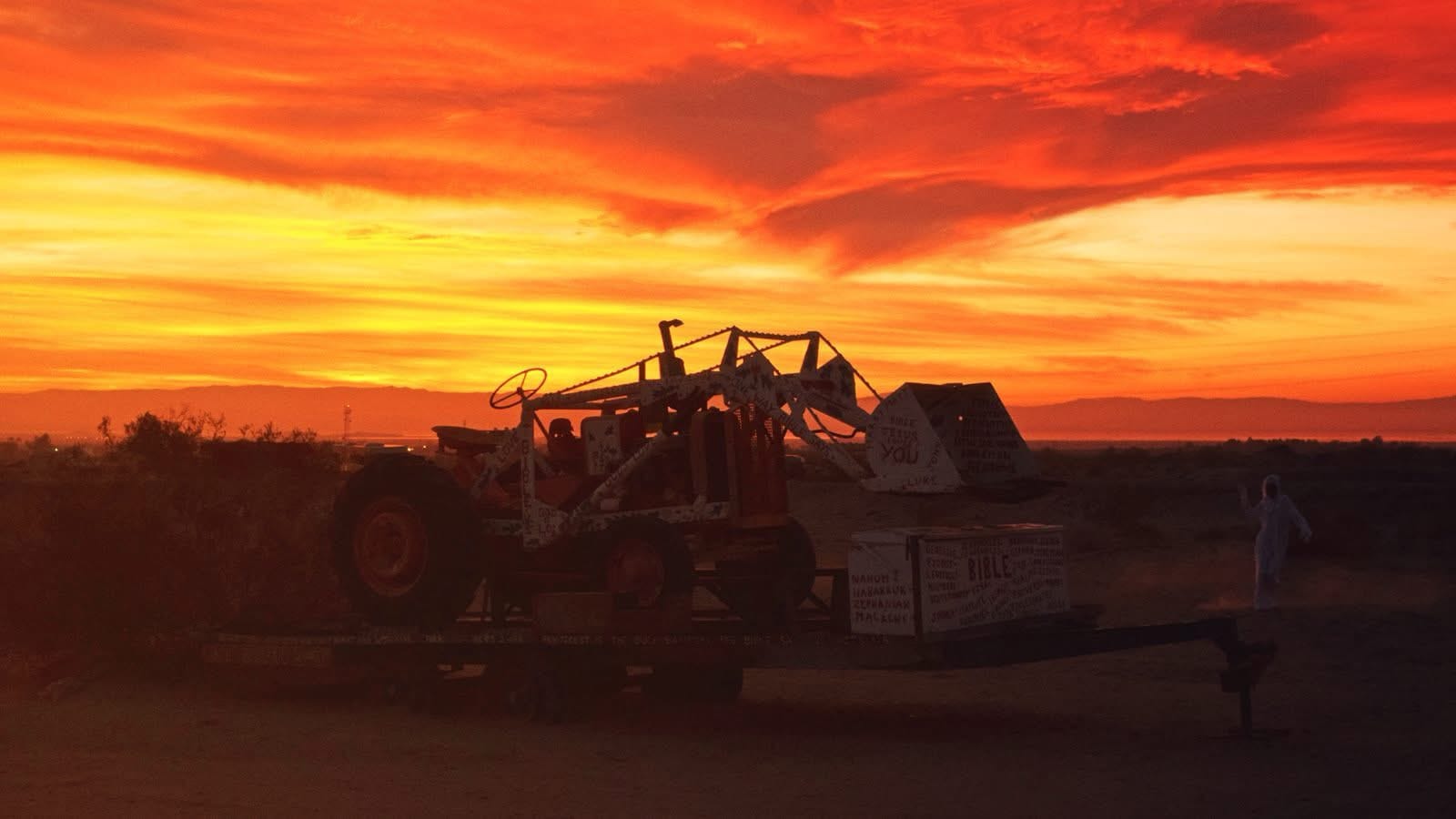
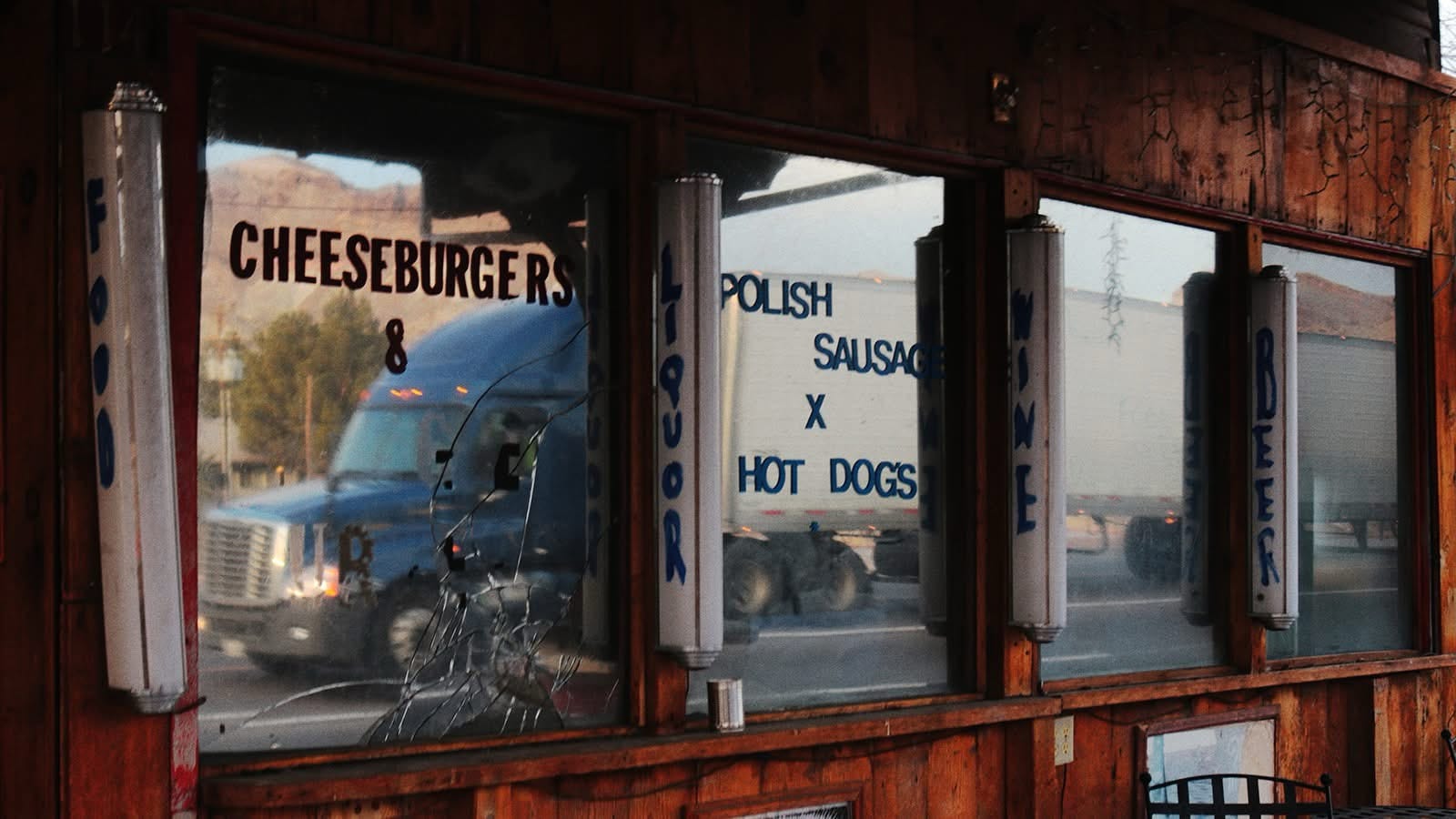
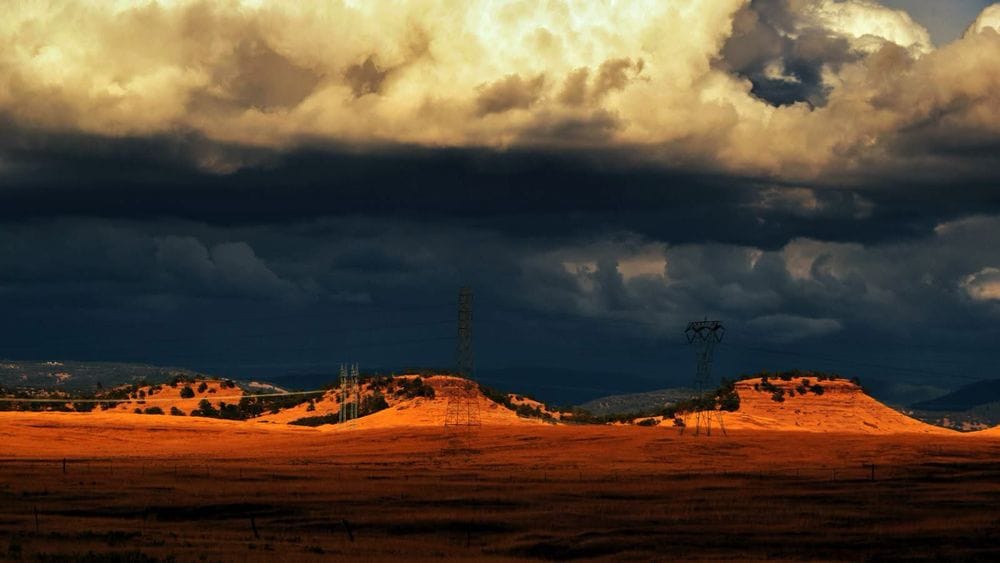
Maybe the photographs are why I always sort of thought of him as a character from the type of under-read but nonetheless revered paperback noir he undoubtedly would have recommended. A guy who was always on the verge of the next score. But the thing is he actually had the goods. What he was always desperately trying to move was the real shit. He just needed the right buyer.
After that we talked about political tension within our respective families. How Covid was tearing everything apart. About Norm.
Unlike the kind of talented men Kaleb wrote about so well he was not himself old. Never will be. Did not get to be. Around ten years or so younger than me I believe. Not even forty if that is possible. But he had the taste of someone twenty or thirty years older. Older than that actually. He had such good taste man. How many people do you know you can say that about? Good fucking taste. The type of guy where even if the things he loved weren’t necessarily your bag you knew there must be something real in there that you just didn’t see yet.

One of my first thoughts when I heard the news this morning was a writerly thought which I think he would appreciate. It was that I wish he was around to write about this. He was the exactly the type of talent whose life he would have been able to explain to all of us once it was over if it were someone else’s. But of course he now cannot.
I suppose he did write about his own death a lot in a way over the past year or so. “The unsolvable problem,” as he wrote last year.
“I don’t know anything, and nobody does. Life is a problem that can’t be solved. A question with no answer. Drill down to the core and that’s all there is. It’s all we have. Ex nihilo. How?”
“We could easily destroy the unsolvable problem, but that’s the ultimate sin. We shouldn’t do that. If we have any imperative, it’s to keep life going, to stop it from being destroyed. Something turns to nothing constantly. Something came from nothing only once.”
I thought just now of something from Norm MacDonald’s book.
“The only thing an old man can tell a young man is that it goes fast, real fast, and if you’re not careful it’s too late. Of course, the young man will never understand this truth.”
Kaleb loved Norm very much and we talked about him quite a bit. How brokenhearted we were to reflect back on some of the things he had said over the years that let us down.
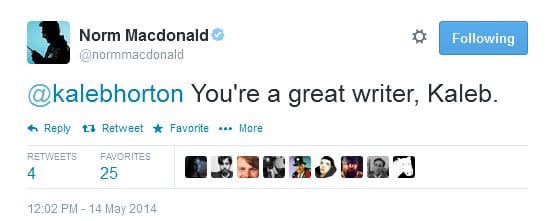
He seemed to be struggling. With drinking and with not drinking of late. Always looking for work too. What a fucking condemnation of this industry that he was ever in need of it. One of his greatest pieces ever – on Haggard – was taken down by a corporation that decided it no longer needed great writing anymore. It can only be read on the internet archive. That’s just how the industry is now I suppose. In an earlier time he would have been the kind of writer being paid $5 a word by magazines to go write about whatever he pleased. And no one would be pissed off or jealous about it either. All of the rest of us scrabbling for that kind of gig just nodding in approval. That makes sense. He has that coming.
A couple years ago I offered him the most money I have ever offered anyone to write for Hell World. Not as much as he deserved mind you but a lot for me. Write about literally anything you want I said. He said he would. He promised he would write something for me multiple times over the years but one thing or another always came up. Something big just around the corner was always about to happen.
I've barely even gotten around to how funny he was.
The Dilbert Project, Part One: pic.twitter.com/fYiTrbZGJi
— Kaleb Horton (@kalebhorton) October 3, 2016
I was always trying to convince him how good he was. Something I think he knew but never fully believed. I just went back and looked at our first emails from 2014. He was asking me for advice on how to pitch to publications. To get his work and his name out there. Our last conversation was back in March. He had a scoop on some newly uncovered Charles Portis writing that he was trying to get eyeballs on. He knew there were so many people out there for whom a “new” piece of Portis’ work would be a treasure because he was that very type of guy.
I did what I did eleven years ago once again this time and told him everything I knew. I’m not sure if he looked up to me or anything like that I think maybe he just thought I was better at navigating the parts of this business that he didn’t seem to understand. Besides the only important part which is the writing itself. I was honestly a little annoyed with him. Just fucking write it for me man. Do you think you’re better than me?
I didn't actually say that but that was the kind of thing I thought. I was probably drunk myself. I’m ashamed to think of it now.
The thing is he was a better writer than me. There are very few people I will admit that about. Especially not a younger writer god forbid.
I soon came to my senses though and emptied my chamber of contacts for him to reach out to again because I thought his work deserved something bigger and more prestigious than my little blog can offer. You understand me here right? I wanted him to write for me but I also wanted him to not have to stoop to that. Ben Affleck showing up at Good Will Hunting’s door. There’s probably a better California reference for that feeling but I wouldn’t know it and he would. I'd love to be able to ask him.
That piece on Merle Haggard explains almost everything he knew about his own piece of California though.
What Merle Haggard had is what separated Bakersfield country from Nashville country. He didn’t try to sing pretty, he tried to sing honest. He tried to write honest. The great Merle Haggard songs, like “Mama Tried” or “Workin’ Man Blues” or “The Bottle Let Me Down” or “Kern River,” they didn’t dress up for you at all. They sounded like they’d been kicked around by dust devils for a few months before he recorded them. They sounded beat up and hard-traveled. And that worked. He just went and told his story and played his songs. He could play any city in the country by being exactly who he said he was.
That made it all right to be from Bakersfield when a lot of people weren’t all right with that. When people might physically recoil at your destitution or wonder if you could read. Here in your corner was Merle, and he was truthful about where he came from, about being an ex-con who had lived in a boxcar in Oildale, and people were fine with him. He legitimized people like my grandparents and all of the other displaced people in the parts of California people try to get away from. He legitimized everybody who got up before sunrise to drive trucks or pick cotton in some of the most desolate towns in America. Towns where it never rained. Towns of dirt and canals and corrugated sheet metal. Every time he had a hit record, he told you it was perfectly normal to wake up with a pack of cigarettes on the kitchen table instead of any food and stare out at a highway. He made you think that you, too, could do something besides stand in a field or sit in a truck, but that if you had to, well, that was all right too.
I’m looking back at our first emails again. He was getting fucked over by a shitty blog. He wanted to try for something bigger but was afraid to let go of the steady pay no matter how bad it was.
“I keep doing it because I live in the middle of nowhere and always need the $25, and I figure it's good discipline to keep writing for no reason as much as I reasonably can," he wrote.
I don’t know why but I feel compelled to share what I told him. Maybe it will help someone else? It’s a much different media landscape now but I think it all still remains true.
Presumably you have a few clips you're proud of right? Get those together. Then, and this sounds obvious but I'm surprised how many younger people don't know it, just pitch. You are a potential candidate for every website in existence. The emails of editors are easy enough to find. You will never write for a site you don't pitch. And you have nothing to lose by being rejected. And you will be. That said, make sure you cold pitch someone with something that surprises them. No one at a good site wants just another blog post. They want an angle that they haven't heard. Pitch the story you want to read...
Which sites do you want to write for? Do it tomorrow. It's really that easy. Getting your foot in the door is hard, sure, but it doesn't start until you're pitching.
A few weeks later he wrote back.
“Vice accepted my pitch, tentatively. Big first step for me if it pans out.”
It really did pan out. He’d go on to write great pieces for big names like Rolling Stone and GQ and this piece he was exceedingly and deservingly proud of, about, of course, a long ago, mostly forgotten California mystery.
Here's the biggest thing I've ever written, a story spanning almost fifty years. It's about California in the 1970s, old highways, and one of those "crimes of the century" you used to hear about. I worked on it a long time and I think it's pretty good.https://t.co/OHjOjP46Wy
— Kaleb Horton (@kalebhorton) July 23, 2021
It didn't pan out well enough though. There should have been more. More work. More life.
I don't know. Go read his stuff is the point. There’s so much great writing on his newsletter too. Much of it is sad and hard to read today like this recent one:
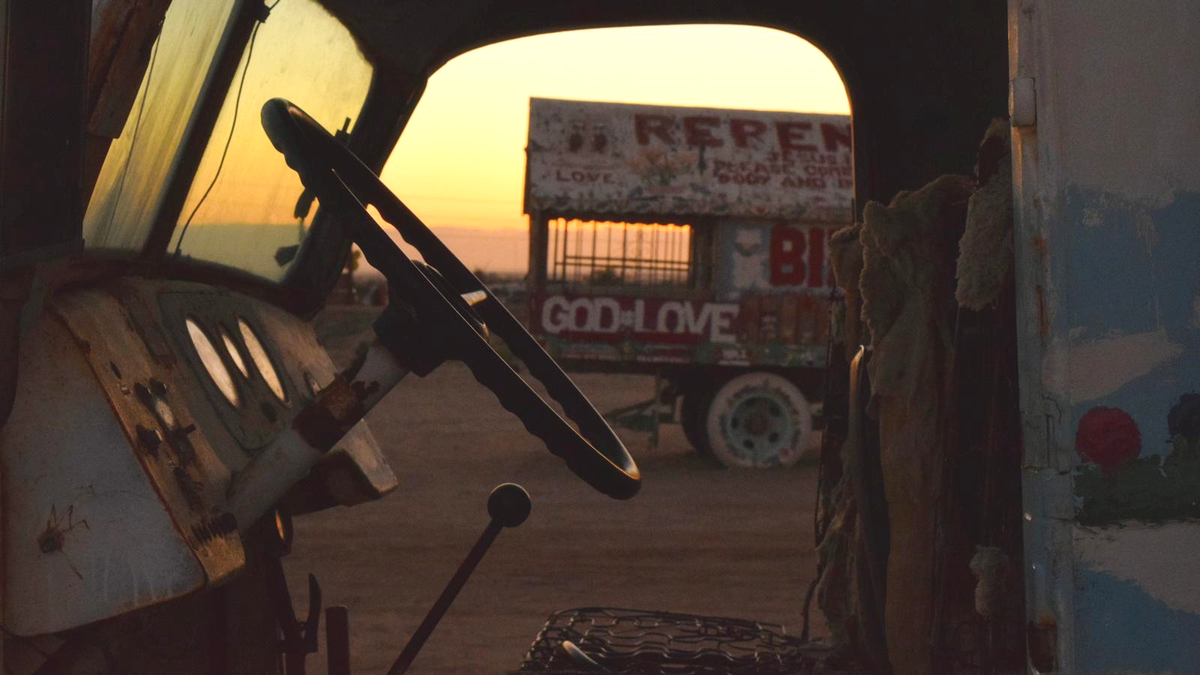
One consistent thing this time of year is that there are crows everywhere. I spend a lot of time thinking about crows. They have the most obnoxious vocalizations of maybe any animal, they’re aesthetically unpleasant and feel like a harbinger of death, and they know when they’re bothering you and they enjoy doing it. Drives me crazy how well they’ve adapted to LA. I saw one just this week going through a garbage can, methodically picking items out of it one by one and tossing them on the ground, looking for foodstuffs. It was making a horrible mess, a mess you’d normally associate with humans. They’re such a pest, and the worst part is you have to respect it. They’re fat and happy and they thrive. They’re annoying in a way that suggests profound intelligence. If they could get around to inventing money, they should get tickets for littering. Treated like equals. I have met crows that should be in jail. There’s one in my neighborhood that seems to have a problem with me personally. They’re my favorite bird.
The job search continues to be a source of constant despair, which is part of why I walk so much. There are so many dangerous lunatics in this town with full-blown jobs, and here I am walking around Whittier all damn day thinking about crows. The tough part is there’s so much more to life than this, and I used to have it, I have personal experience with it. I’ve had a taste. What an annoyance to have known.
But maybe it’s best to end with this.

I also have advice. Everybody loves reading advice on the computer, so I’ll share it: the best thing you can do right now is log off as hard as you can. Go outside, talk to people in real life where it’s actually kind of rude to talk about the news, try to actually see the friends you usually just text message. Go for a long drive and turn the phone off while you do it. Get back into your hobbies or pick one and learn it for a while. Watch one of those studio movies that reviews called “wildly miscalculated” and you haven’t seen since high school. Play an album you like but find embarrassing. Go to free community events even if they sound stupid. If you take the freeway, try the surface streets. Go to a bad diner and just order some bad coffee because even bad coffee is good coffee.
You can’t help anybody when you’re exhausted and keep posting one million college-educated rewordings of “I would love to be dead right now” on the computer. Walk away from the thing and try out some of those normal things you hear about and if you get bored that’s wonderful because we’re not supposed to get bored anymore. It turns out boredom is the Cadillac of feelings.

A couple weeks ago Raven Geary reported on the ongoing assault on Chicago by ICE. They're still out there every day with a brave group of protestors and were shot in the face on Friday with "less lethal" ammunition. Please follow along with their reporting and support if you can.
Took fire to the face. ICE definitely isn’t aiming at ground and firing at people’s heads again.
— unraveled (@unraveledpress.com) 2025-09-26T14:05:43.625Z
I sent out three pieces the other day if you missed them. This one was a lot of fun.
Sex Change & The City was made as a sort of defiant response to living in hell world and it's an honor to be in Hell World about it!!!!!!!! thank u luke!!!
— tuck woodstock (@tuck.bsky.social) 2025-09-26T14:21:07.558Z
Carrie obsessively labors over her relationships, feelings, and memories. She splays out on her bed, writing about her experiences, reliving moments alone in her room. Her life is still my fantasy. It’s easier, in that it takes less effort, to let yourself be driven by your emotions, without doing the work to resist your impulses. (Sending a stream of texts in an anxious moment; staying out too late.) But indulging in this way of being doesn’t feel cute or fun anymore—letting myself live like Carrie, in the real world, creates a vicious cycle of regret. Chaos and drama, forgetting bill payments and birthdays.
Through Carrie’s neurotic personality, I see a baby woman searching for a magical concept of love in a princess dreamworld. This is why, when her sense of reality is shattered—by a broken computer, a broken heart—she wants time to stand still for her sadness.
As was this one.
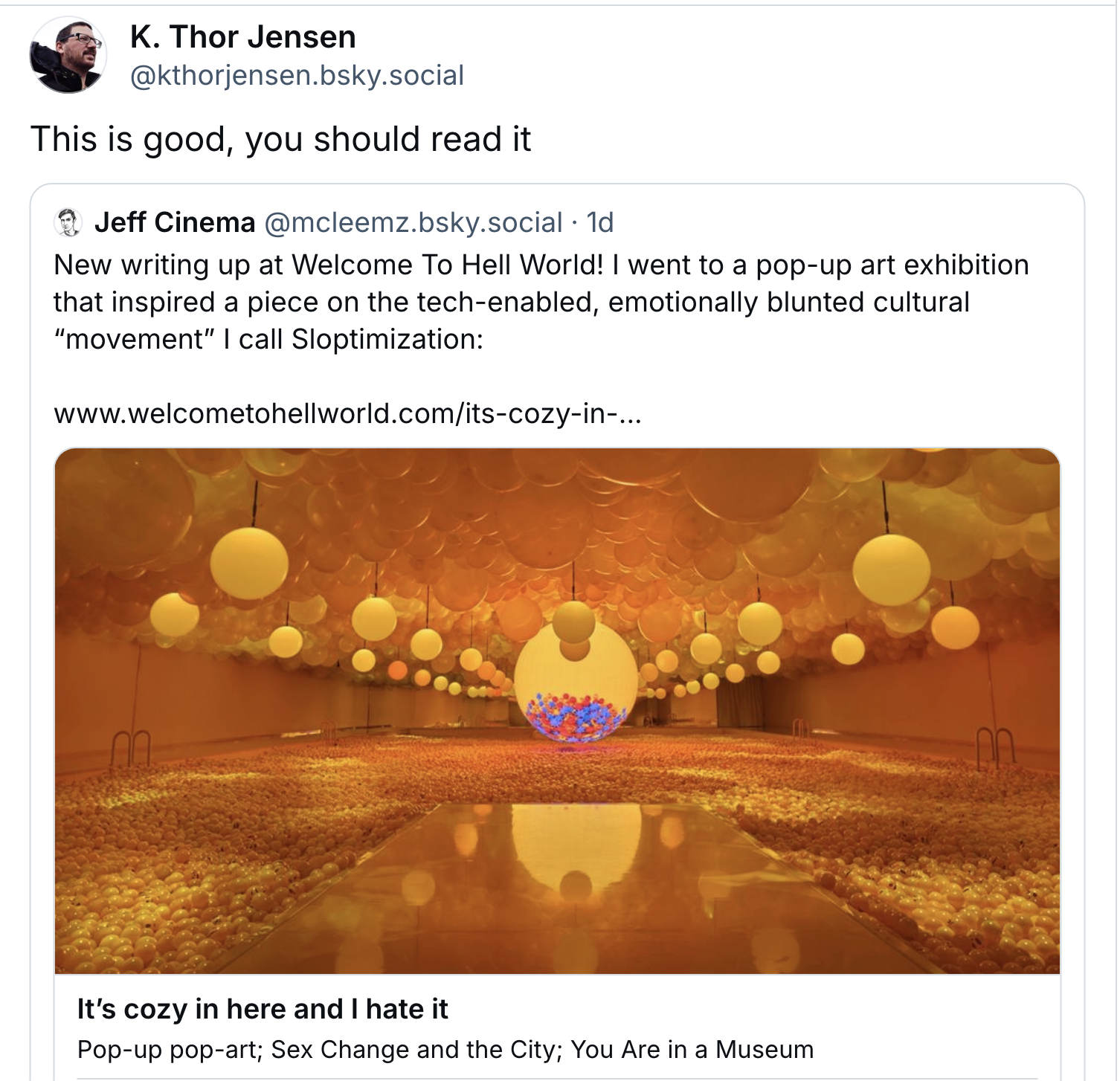
Even if you’ve never shelled out for one of these immersive experiences, you’ve seen them: brightly colored photo-op tableaux constructed at massive scale to be captured and cropped for a phone screen.
If the amused throngs of mostly childless urbanite attendees are any indication, Emotionair is a fine way to spend an hour and $30 ($50 on weekends). And there’s nothing novel or particularly perfidious about conspicuous aesthetic tourism. But those kawaii appendages point toward a uniquely modern hollowing-out of the pleasure and leisure spheres. Mediums like art, film, and food once reliably promised occasional enrichment via the unpredictable, even uncomfortable thrill of discovering something new. Lux Entertainment and its cohort have something else on offer: a familiar, frictionless, reduced-agency complement to the tech-enabled capital and labor-market forces grinding us all into dust.
It’s all delight, no surprise. The things we get to do for fun are now fully sloptimized.
Did your copy of We Had It Coming arrive yet? I still don't have one wtf??
Psyched everyone is getting their copies of We Had It Coming already but I haven’t even got one yet! Feel like they locked my ass out of the delivery room for causing a ruckus.
— Luke O'Neil (@lukeoneil47.bsky.social) 2025-09-27T23:33:06.179Z
@drivebytruckers.bsky.social lyric mention in @lukeoneil47.bsky.social an absolutely staggering crossover event just for me
— (@thelindsayb.bsky.social) 2025-09-27T23:38:53.954Z
Here's an excerpt I posted recently.

“We have lots of bears here in Kaktovik because they have no place to go,” a quote from a hunter read on the text card.
“The bears here are climate refugees. Soon we will be climate refugees too.”
He stood looking on dumbly over her shoulder.
I don’t know he said.
What?
I don’t know if I’m any good at going to museums anymore. I try but I just don’t really get uhh transported anywhere he said. Not like I do just standing on an old street. Like the one from earlier he said.
Which street she said.
I don’t know.
He thought that museums necessarily strip away a few of our senses. Nothing smells like anything and you usually can't touch or thankfully taste anything so that just leaves the looking and sometimes the listening.
With so much quiet it's hard for me to block out the part of my brain that’s operating in the background going you are in a museum.
You are in a museum and it is time to be moved by art.
I guess that's that for today. I'm sorry for my loss. I'm sorry for your loss. I'm sorry for all of our losses.



